What's new

IWH’s Mustard Postdoctoral Award recipient announced
IWH is pleased to announce Dr. Cherise Regier as the new recipient of the Mustard Postdoctoral Award. This award aims to support the development of outstanding new and interdisciplinary researchers in the field of work and health. Throughout this two-year award, Regier hopes to continue her research on the intersections between job quality, mental health and labour market transformation.
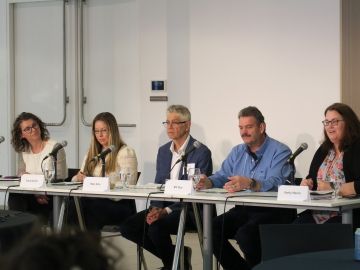
New report shares insights on addressing opioid-related harms among workers
Last spring, IWH co-hosted a workshop with the Occupational Cancer Research Centre on opioid harms among workers. The event aimed to share evidence and diverse perspectives on opioid-related harms among workers, discussing contributors to these harms and identifying actions to address them in the workplace. A report is now available that summarizes the workshop and the insights shared by panelists and attendees.
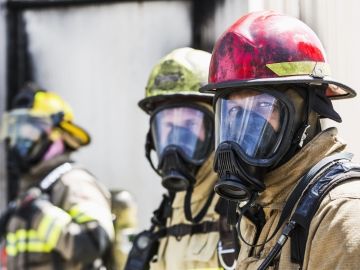
IWH Speaker Series: Preventing PTSI work disability at first response organizations
Due to the nature of their work, first responders (paramedics, police and firefighters) are routinely exposed to traumatizing experiences. How are first response organizations helping to prevent post-traumatic stress injuries (PTSI) among their workers? On May 27, Dr. Emile Tompa shares findings from a study that set out to learn about organizational-level programs, services and practices to address PTSI for first responders.
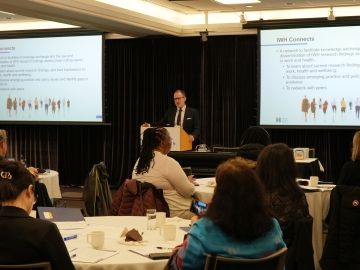
IWH network event gathers safety leaders to share ideas, resources
This spring, attendees of IWH's second annual IWH Connects meeting had a chance to exchange ideas about research and resources for organizations in three key areas: building employer confidence in disability, equity, inclusion and accessibility practices; promoting health and safety in linguistically diverse workplaces; and addressing the psychosocial work environment.

IWH rates high in trust, relevance, value in new stakeholder survey
One way the Institute for Work & Health (IWH) makes sure it meets its mission is to conduct stakeholder surveys, roughly every two years. In these surveys, stakeholders are asked whether they agree that the Institute’s research is trustworthy, unbiased, relevant and useful. With these questions, IWH seeks to measure how stakeholders view the calibre of its research and its value to them.

IWH Speaker Series: Good jobs, bad jobs, and ‘deaths of despair’
Not all jobs are created equal, and research has shown that low-quality jobs can have a range of health impacts for a worker. On April 22, Dr. Faraz Vahid Shahidi discusses a study that examines whether job quality—having a “good” or “bad” job—is linked to what some call “deaths of despair”: deaths caused by suicide, drug poisoning and alcohol.

Precarious jobs linked to suicide, drug poisoning, and alcohol-related deaths: IWH study
In Canada and other high-income countries, rates of suicide, drug poisoning, and alcohol-attributable mortality—sometimes referred to as “deaths of despair”—have increased over time. An IWH study investigated whether job quality—measured in terms of employment stability, hours and wages—is linked to these causes of deaths.
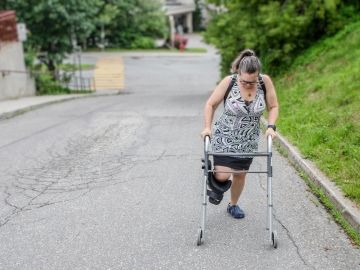
Injured workers face mental health challenges beyond diagnosable conditions
Workers with a work-related physical injury that takes them off the job can have a wide range of mental health experiences, beyond diagnosable conditions. That’s according to an IWH study which also found that differences in workers’ mental health after an injury were linked to return-to-work outcomes. Those reporting both a mental health condition and the poorest wellbeing had longer, more expensive compensation claims.
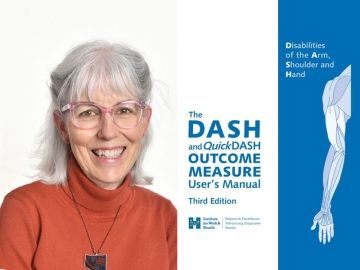
IWH scientist honoured with lifetime achievement award
Institute for Work & Health Senior Scientist Dr. Dorcas Beaton has been named the recipient of the International Federation of Societies for Hand Therapy (IFSHT) Lifetime Achievement Award. The IFSHT cited in particular Beaton's body of work on the DASH Outcome Measure and the QuickDASH, both developed at IWH.

In-person or online: Does it make a difference for OHS training?
Online formats for occupational health and safety (OHS) training have gained popularity in recent years, especially since the COVID-19 pandemic. But are they as effective as in-person training? An IWH study compared online and in-person OHS training programs to measure differences in knowledge retention and whether learners felt they would use the knowledge they gained.

How employers are improving RTW outcomes for public safety workers with PSTI
Work-related post-traumatic stress injuries are complex and highly prevalent among public safety workers such as those in police and fire services. Faced with the challenges of supporting employees who have experienced such an injury, public safety employers have developed strategies to improve return to work after such an injury.

Examining four types of job disruptions due to a health condition, and the differences expected when workplace support needs are met
Job disruptions are common among workers living with chronic physical and/or mental health conditions, an IWH study has found. The study investigated the effects of workplace supports on four types of job disruptions.

IWH Speaker Series: Surveying the landscape for AI use in occupational health and safety
As artificial intelligence (AI) is used more and more in workplaces across Canada, it also has the potential to transform occupational health and safety practices. On March 25, Dr. Arif Jetha outlines how AI could create safer workplaces and support worker health, sparking a discussion on both the risks and opportunities of AI in health and safety.
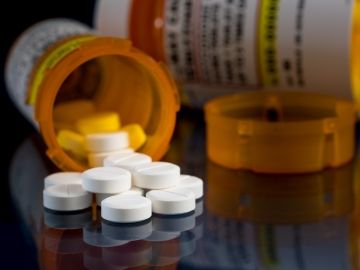
Severe pain, not pressure to return to work or lack of accommodation offer, linked to opioid use post-injury
An IWH study found that among a group of injured workers in Ontario, those who experienced severe pain were more likely to use opioids than those who had no or only mild pain—regardless of whether they felt they had to return to work too soon, or were offered work accommodations.
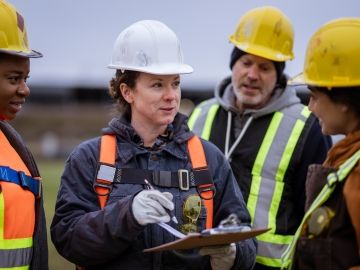
Saskatchewan’s construction safety group uses IWH tool to improve safety culture
Since 2021, the Saskatchewan Construction Safety Association (SCSA) has been surveying its members twice per year on their organizations’ safety practices and culture using IWH’s Organizational Performance Metric (OPM). A new case study details how SCSA members have been analyzing OPM scores to adjust their safety practices and how SCSA has been using the data to tailor their outreach.

Employers face challenges in supporting public safety personnel with post-traumatic stress injuries
Workers in public safety jobs, like firefighters or police, are often exposed to potentially traumatic events and may experience mental health injuries as a result. In Ontario, a pilot program has been developed to help treat these workers. To identify any needed changes to the program, IWH researchers asked employers about their experiences helping these workers return to work after a mental health injury.

IWH Speaker Series: The mental health of injured workers with a physically disabling injury
On January 28, Dr. Kathleen Dobson shares results from a recent study examining mental health profiles among a group of physically injured workers in Ontario. She also discusses how a holistic model of mental health helps highlight the diverse experiences of injured workers.

A new tool to help workers make health disclosure decision
Workers with chronic or episodic health conditions may face the decision of whether to disclose their health information at work. But many find this decision challenging and stressful. A worker may need supports due to their condition but may worry that sharing health information could impact their reputation or job security. A new IWH tool, called DCIDE, was developed to help workers make these hard decisions.

Meeting on newcomer workers’ health inspires ideas for research and collaboration
Newcomer workers have a higher risk getting injured or ill at work than Canadian-born workers. In a step to address this longstanding issue, IWH recently hosted over 50 stakeholders to discuss the health and safety challenges these workers face. They also discussed how employers and others are addressing these challenges, and what research is needed to better support these workers.
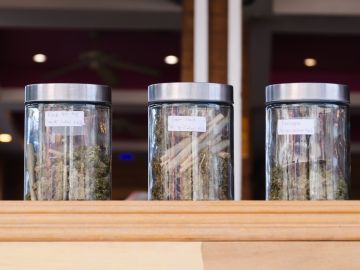
Cannabis use by workers before and after legalization in Canada
On October 17, 2018, the non-medical use of cannabis was legalized in Canada. To examine the implications of this change for workplaces, the Institute for Work & Health (IWH) embarked on two research projects. The first project set out to explore changes in cannabis consumption habits among workers; changes in their perceptions about such consumption; and associations between cannabis consumption and occupational injury risks. The second project looked at the use of cannabis to treat symptoms in the aftermath of a work-related injury/illness. This Issue Briefing provides an overview of findings from these two studies.

Let us know whether you trust and use IWH information
Do you find the information from the Institute for Work & Health trustworthy? Do you think it’s relevant, useful and unbiased? As a valued subscriber to an IWH newsletter or e-alert, your feedback is important to us. Please take a few minutes to answer just nine questions and let us know if we’re on the right track. The survey is up only for a short time, so please take the survey now.

Which workers and jobs will be most affected by machine learning?
Machine learning is being adopted by more and more Canadian workplaces. Given this technology’s ability to learn, adapt and generate work outputs, it also has the potential to perform job tasks in place of humans. But which workers might be most affected by the use of machine learning? An IWH study explores this question.
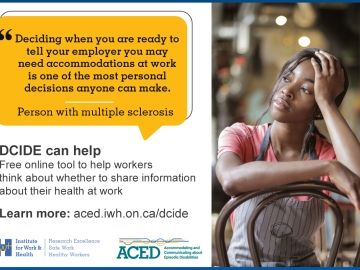
New tool for deciding whether to share health information at work
Join us on November 19 as Dr. Monique Gignac introduces a new tool called DCIDE. The tool is designed to help workers consider whether to disclose a chronic health condition at work. Why are workplace disclosure decisions so difficult? Gignac will share research findings on this question and describe how DCIDE can help.

Consultants play key role in OHS implementation at small firms
Time and resource constraints may make it hard for small businesses to access health and safety support programs. But, as an IWH study finds, small businesses gain from even limited participation in such programs. The study, based on interviews with small businesses that took part in Ontario's Health and Safety Excellence Program, also highlights factors that contribute to their success in the program.

Apply for the Cameron Mustard Early Career Accelerator Award
Are you an early-career researcher in the field of work and health? IWH is now accepting applications for the Cameron Mustard Early Career Accelerator Award. Named after the former president and senior scientist at IWH, this award was set up to honour Mustard’s commitment to mentoring future generations of work and health researchers and to strengthening the work and health research ecosystem. Applications are due December 8.

Which workers use active forms of transportation in their commutes?
Walking, biking, or taking public transportation to work is one way workers can increase their physical activity. But does the choice to use active transportation differ for workers in different jobs, or between men and women? This study aimed to find out.

MEDIA RELEASE: Injured workers have higher rates of opioid poisonings than the general population: study
October 17, 2024 (Toronto, Ont.)—People who have previously experienced a work-related injury are more likely to experience opioid poisonings and other opioid-related harms than the general population. That’s according to research conducted by the Institute for Work & Health (IWH) and the Occupational Cancer Research Centre (OCRC), using data from 1.7 million Ontario workers who had an accepted lost-time workers’ compensation claim between 1983 and 2019.
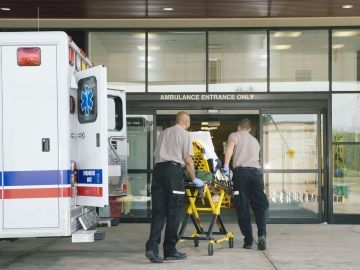
In which occupations are Ontario workers who had a work-related injury most at risk of opioid-related harms?
Formerly injured workers in certain occupations are at an elevated risk of experiencing opioid-related harms, according to a study by IWH and the Occupational Cancer Research Centre. Looking within a large sample of formerly injured Ontario workers, occupational groups with greater risks of harms included construction, forestry and logging, materials handling, and processing.

IWH thanks outgoing Board members, welcomes new ones
IWH warmly sends its thanks to three outgoing members of the Board of Directors for their years of service, and welcomes to the Board three new members.

Workplace supports buffer productivity impacts of rheumatic diseases and depression
Young adults who live with both a rheumatic disease and depression have lower productivity than those who have only one or neither condition. That’s according to a new IWH study. Findings from this small study also suggest that having a supportive working environment can buffer the lost productivity issues.

Moving research into practice in a program about movement
Nova Scotia's Make Your Move at Work program is designed to help employers support their employees to get up from their desks and move more during the work day. As told in a new IWH impact case study, it was informed by two IWH studies: one on Canadian workers' movement patterns and health, and the other on the integration of health promotion and injury prevention activities in the workplace.

Higher risk of work injuries found among those in precarious jobs: IWH study
Workers in jobs where precarious employment conditions are more common are more likely to experience a work-related injury or illness in Ontario, including COVID-19. That’s according to a pair of studies authored by Institute for Work & Health (IWH) researchers that examined whether employment conditions—for example, temporary contracts, involuntary part-time hours, irregular schedules and low wages—may be linked to the rate of work injuries.

S. Leonard Syme Research Training Award Recipients Announced
The Institute for Work & Health (IWH) is pleased to announce the 2024/2025 S. Leonard Syme Research Training Award recipients. They are: Elsie Obeng-Kingsley, Ainsley Miller and Andrea Baumann. The Syme awards were established in 2002 to recognize Dr. S. Leonard Syme's contributions to IWH as chair of its Scientific Advisory Committee from 1995 to 2002. The awards are intended to support early-career researchers at the master's or doctoral level intending to study work and health.
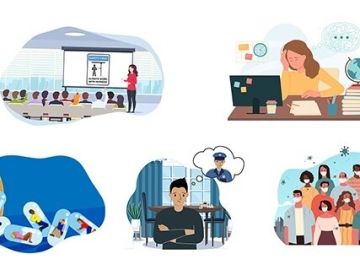
5 Things We Think You Should Know 2024
The 2024 edition of 5 Things We Think You Should Know is out! This two-page handout outlines five IWH research findings from the past year that we think can make a difference to workplace injury and disability prevention programs. Download it and share!

New report on machine learning explores the occupational and worker groups most likely to be affected
Machine learning is a form of artificial intelligence that is being adopted by growing numbers of Canadian workplaces. With its ability to learn, adapt and generate work outputs, this technology also has the potential to perform job tasks in place of humans. An IWH study uses novel methods to examine the characteristics of occupations and worker groups most likely to be affected by machine learning adoption.

Rates of work injuries have declined in Ontario, except the most severe
Past research in occupational health and safety, including studies conducted at IWH, has shown a general decline in rates of work-related injuries in Ontario over the past two decades. But a new IWH study, based on emergency department records from 2004 to 2017, shows that when it comes to very severe injuries, no such decline was seen among men. It also finds an increase of 18 per cent among women.

Grant round-up: Preventing physical and mental health injuries a focus among externally funded IWH studies
Investigating how daily activity patterns affect workers’ cardiovascular health, helping new businesses to start managing occupational health and safety, and assessing B.C.’s psychosocial work environment to inform a mental health strategy. These are among the latest externally funded projects underway at the Institute.

Working unpaid overtime linked with high stress and burnout: IWH study
Building on research linking overtime work to depression, anxiety, and other mental health concerns, an IWH study investigated how working unpaid overtime is associated with mental health in Canada’s working population. They found that that the more unpaid overtime hours worked, the more likely a worker is to report stress and burnout.
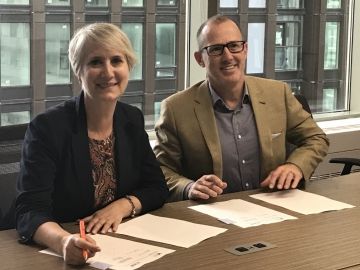
IWH strengthens relationship with Quebec-based counterpart
Part of IWH’s mission over the next five years is to strengthen the work and health research ecosystem and to expand the Institute’s impact. In a step towards both of these goals, IWH has signed a master cooperation agreement with the Quebec-based non-profit, Institut de recherche Robert-Sauvé en santé et en sécurité du travail (IRSST). This newly strengthened relationship will allow IWH and IRSST to increase their work together in service of creating healthy and safe work environments.
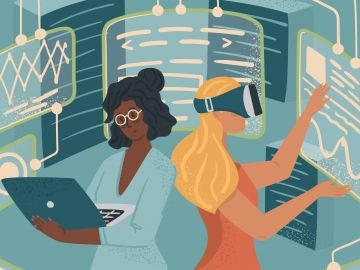
Top-ranked strategies to support young persons with disabilities in the future of work
IWH researchers asked persons with disabilities, practitioners and subject matter experts about strategies for disability inclusion in the face of six future of work challenges, such as advancing technologies, climate change and artificial intelligence. A new report details their top-ranked strategies for each challenge that can help to foster inclusion in the labour market and the workplace. Several cross-cutting themes emerged across strategies.
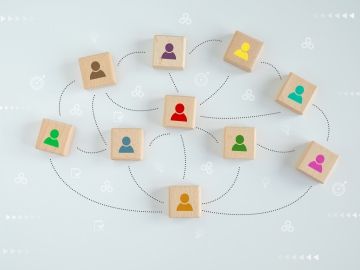
IWH brings together new network to share research and exchange knowledge
In its newest avenue for stakeholder engagement, IWH recently held the inaugural IWH Connects meeting. This event, held in person in Toronto, hosted a new network of 40 workplace parties, policy-makers and health, safety and wellness practitioners. These stakeholders were brought together to learn about high-priority work and health research and discuss its implications for practice and policy.